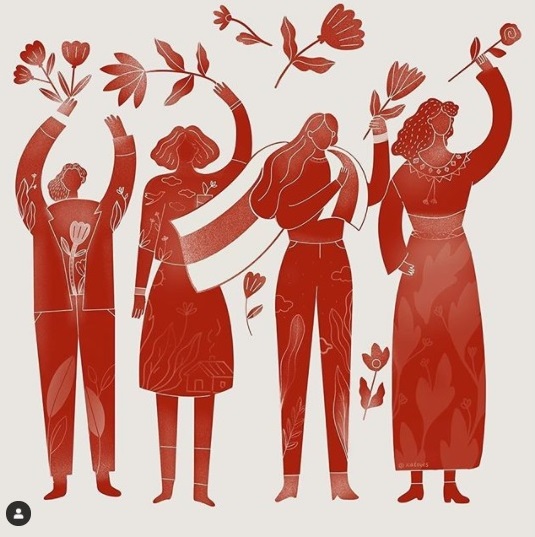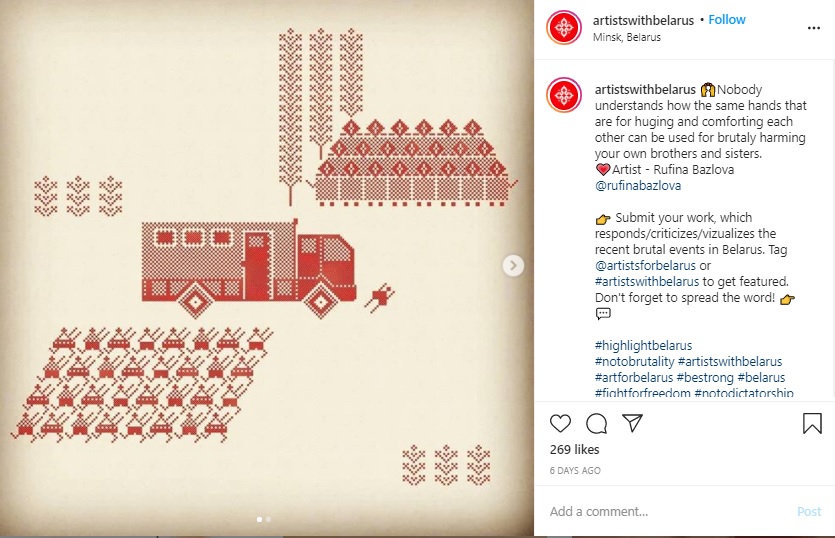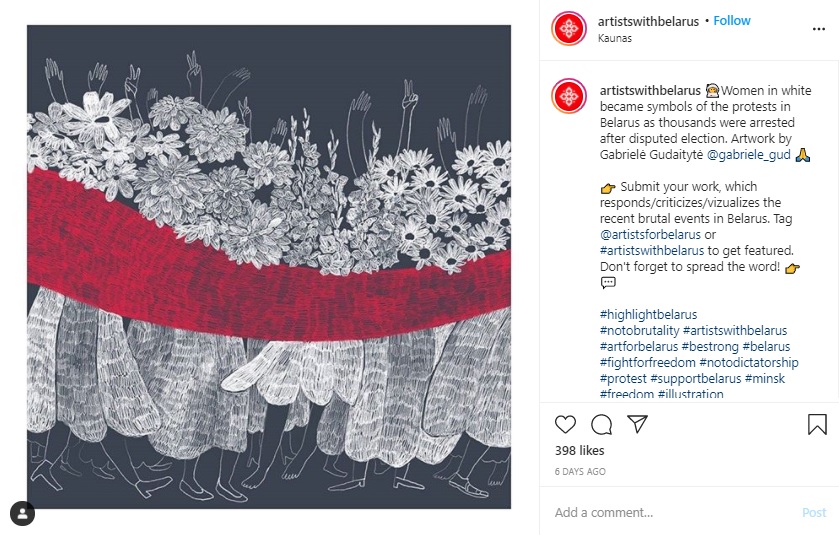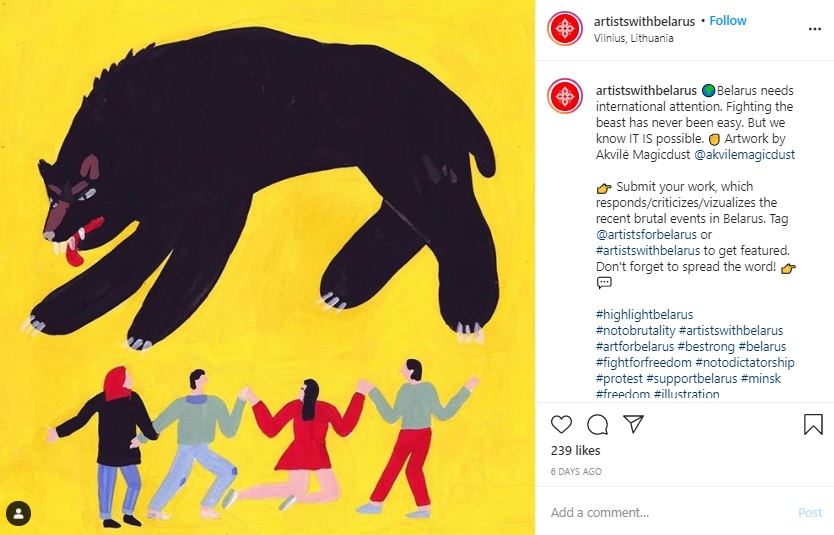Katie Baranovsky (2020)
Art has a significant role in the construction of a free society. Quoted from Herbert Marcuse (1970), “art is negating force”. Art is the last language that can articulate critical and subversive communication.
Rufina Bazlova (2020)
In Belarus, many artists take part in the process of liberation and civil freedom advocacy. Artists’ communities who are concerned about the solidarity to peaceful fighting in Belarus, @artistswithbelarus uploads the artworks related to the struggle of protesters on their Instagram account.
Rufina Bazlova (2020)
Rufina Bazlova creates traditional embroidery of Belarusian to express her support for the victims of brutality in Belarus protest. She portrays a crowd of protesters with a police van close to them. Red embroidery on a white background has associations with Belarusian traditional pattern and white-red-white flag, the opposition symbol to the regime of Lukashenko.
Gabrielė Gudaitytė (2020)
Gabrielė Gudaitytė makes a drawing that depicts a crowd of women protesters in white, covered with flowers and red ribbon. This drawing symbolizes the protesters in Belarus. Thousands of them were arrested after disputed the election. Women and flowers often become symbols of peaceful protest. Along with these symbols, the combination of red ribbon in white background is associated with the white-red-white flag.
Akvilė Magicdust (2020)
Akvilė Magicdust creates a painting that tells about a group of people fighting the beast. This painting suggests the peaceful protests that encounter violence from authorities.
All of these artworks are important, in Marcuse’s notion (1971), to create a better society by providing and sustaining the images of freedom. This is the great subversion task of art. Art thus comes to join the struggle against domination and repression, both in mental and physical form. (Marcuse, 1970).



 ’ / 2020
’ / 2020

